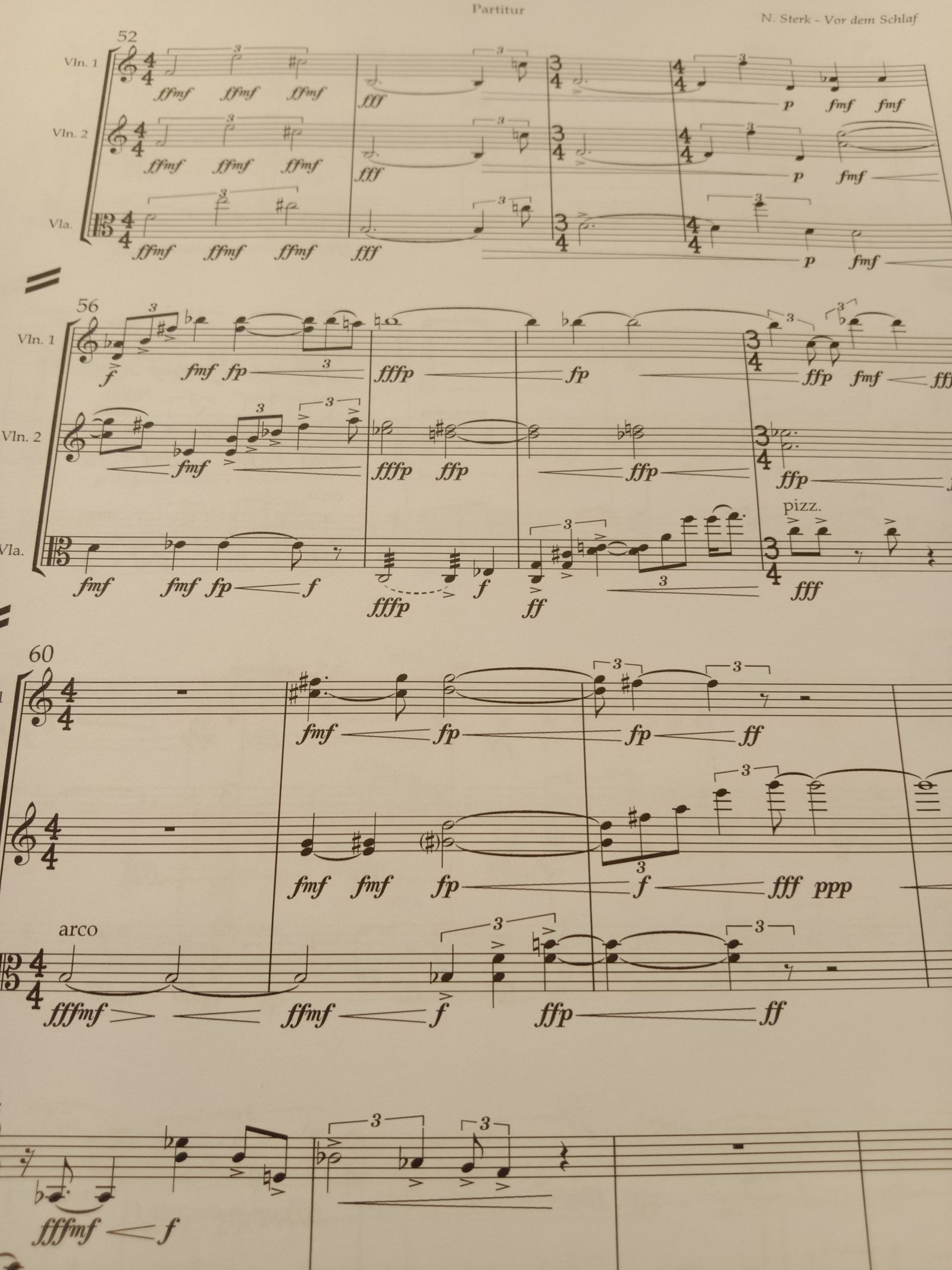Vor dem Schlaf
Hommage à Viktor Ullmann/ Hommage à Johann Sebastian Bach
Author(s) Norbert Sterk
Vor dem Schlaf (2025)
„The fringed curtains of thine eye advance. And say what thou seest yond.” (William Shakespeare, The Tempest)
Johann Sebastian Bach's Prelude in B minor from the Well-Tempered Clavier, Volume 1 forms the foreground or the transparent, "fringed curtain" which, when finally pushed aside, reveals Viktor Ullmann's Andante of his 5th Piano Sonata, which he composed in 1943 in the Theresienstadt concentration camp and to which he prefaced with the first stanza of the poem Before Sleep by Karl Kraus (1919 in Die Fackel) as its motto.
Vor dem Schlaf
So spät ist es, so späte,/ was werden wird, ich weiß es nicht.
Es dauert nicht mehr lange,
mir wird so bange,
und seh' in der Tapete
ein klagendes Gesicht.
Allein bin ich, alleine,/ was außerhalb, ich weiß es nicht.
Ach, daß mir's noch gelänge,
mir wird so enge,
und seh' in jedem Scheine
ein fragendes Gesicht.
Nun bin ich schon entrissen,/ was da und dann, ich weiß es nicht,
ich kann sie nicht behalten
die Wahngestalten
und fühl' in Finsternissen
das sagende Gesicht.
Bach's work was a constant source of inspiration for Viktor Ullmann's work: Rich in metaphorical allusions to Bach's fugue art, to chorales, or to his name, some of his works are inscribed.
This homage describes the view of the events of Ullmann's Andante as if through or behind a curtain, in varying degrees of clarity or opacity. It could be heard as an artistic research or even as a sonorous "analysis" of polyphonic structures and meandering harmonies. Allusions to other works by Viktor Ullmann, such as the opera The Emperor of Atlantis, also composed in Terezín, or the Largo section of the Third String Quartet, the variation movement of his Seventh Piano Sonata, as well as to the Fourth Piano Sonata, composed during the Nazi "Protectorate of Bohemia and Moravia," which in turn establish references to Bach, are possible.
What I said about my stage work and Ullmann homage ...und fühl in Finsternissen das sagende Gesicht also applies to Vor dem Schlaf:
"The reception of Ullmann's plays is closely linked to Theresienstadt and to the astonishing fact that a large part of his surviving work was created under the nightmarish conditions of this camp, which the Nazis staged as a "theater of deception." The content, the original depth of his compositions, is immediately communicated to the listener, entirely without knowledge of his biography. Nevertheless, the piece by no means obscures the historical component. For I also interpret Viktor Ullmann's music as messages.
I perceive them as messages cynically permitted by the National Socialists and, at the same time, as secret messages from an artist caught in the tension between deception and spiritual resistance. In their delayed "arrival," Ullmann's compositions, repressed for years, resemble the countless letters that the protagonist of Doron Rabinovici's story "Follow-Ups from His Relatives" finds in his deceased mother's mailbox many years after their murder. Like these "messages" from those deported to concentration camps, Ullmann's work was only revealed to the world decades after its creation and his murder.
